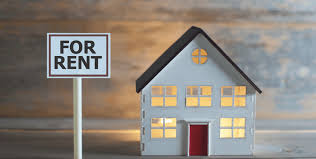ENVIRONMENT

LAGOS RENT CRISIS: SHOULD THE STATE REGULATE LANDLORDS OR BUILD MORE HOMES?
The Lagos State Government is looking to overhaul its tenancy law to clamp down on arbitrary rent hikes and protect tenants from exploitation. But many experts argue that instead of focusing on regulating landlords, the government should channel its energy into building more affordable homes.
Across Lagos—and indeed many Nigerian cities—tenants and landlords are often at odds. Tenants complain about illegal evictions, skyrocketing rents, and poor living conditions, while landlords lament damage to property, unpaid rents, and a slow legal process that makes evicting defaulting tenants frustrating and costly.
In Lagos, the housing deficit is massive—estimated at over five million units. This huge shortfall means demand heavily outweighs supply, giving landlords an upper hand. Many demand up to two years’ rent upfront, ignoring laws that limit advance payments, and often increase rent without notice. On the flip side, landlords argue that rent is often their main source of income, and delays from tenants put them under pressure, especially with Nigeria’s tough economic climate.
To address this chaos, the Lagos State Real Estate Regulatory Authority (LASRERA) says it plans to revise the 2015 Tenancy Law. The proposed changes could include enforcing monthly and quarterly rent payments to make it easier on tenants. The state’s special adviser on housing, Barakat Bakare, has warned landlords against exploiting residents through unjustified rent hikes.
But many in the real estate sector fear such regulations could backfire. Industry players warn that imposing rent controls without addressing underlying issues like the rising cost of building materials, high interest rates, and inadequate infrastructure will discourage investment in housing. This could reduce the supply of rental properties, force landlords into the short-let market where they can charge higher daily rates, and even create a black market for housing.
They also argue that the problem isn’t just about the law itself. The judiciary needs to be more efficient in handling landlord-tenant disputes so landlords feel protected and tenants get justice.
Gbenga Ismail, former chairman of the Lagos branch of the Nigerian Institution of Estate Surveyors and Valuers (NIESV), agrees that while regulating rents is a good idea, it must be balanced to protect both tenants and landlords. Similarly, real estate consultant Sola Enitan points out that overly strict tenancy laws could clash with constitutional property rights and disrupt the market.
Most experts believe the long-term solution is for the government to prioritize building more affordable homes. If supply rises, it would ease pressure on rents naturally. As Lagos continues to grow, finding a balanced approach that respects landlords’ investments while protecting vulnerable tenants will be critical.
"This represents a significant development in our ongoing coverage of current events."— Editorial Board









